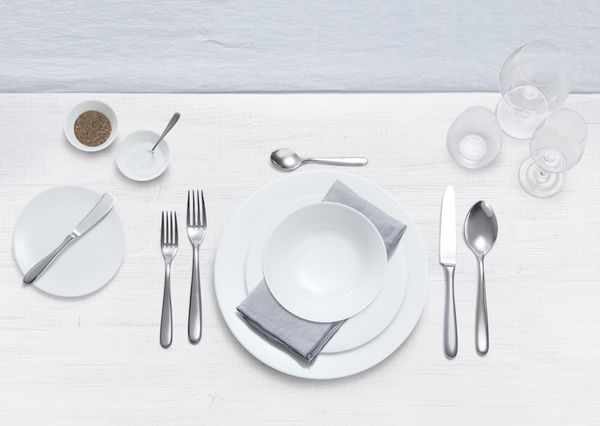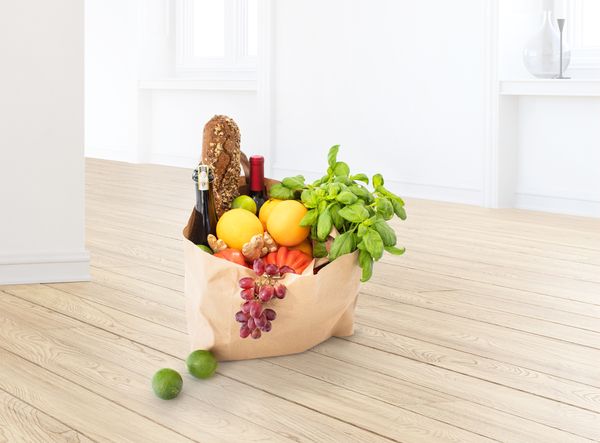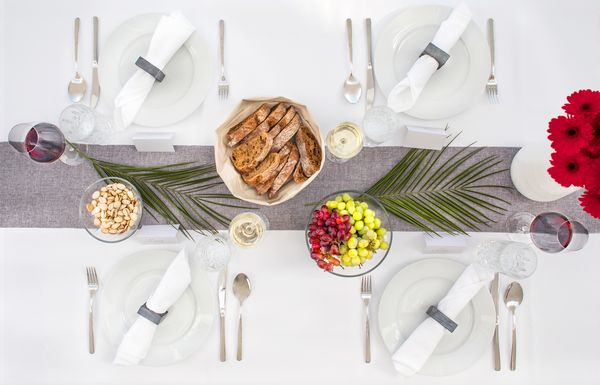Parties are fun, but hosting them can be a lot of work. How do you minimise stress and maximise enjoyment? Planning ahead is your best friend. The less time you have to spend in the kitchen, the more time you’ll have to enjoy yourself with the people you love. These tips and tricks will help you throw a stress-free gathering like a pro.

Start planning early
8 - 6 weeks in advance: Pick a date. Being flexible will ensure to find a date that works best for most people, if not all.
Create an eclectic guest list. The best dinner parties are usually those where guests come from a range of backgrounds and interests.
Select party invitations. An individual design will help set the tone for your party, whether sophisticated, casual, a special theme or something else. Don’t forget to include R.S.V.P details like your phone number, e-mail address and deadline, if necessary. It will help you plan the amount of food and drinks you’ll need.

Create a menu that will wow the crowd
4 weeks in advance: Decide what to serve and cook a test meal to make sure everything works. Don’t use your dinner party to try something for the first time. To avoid nasty surprises ask your guests about allergies, intolerances, and other dietary restrictions so that you can create a menu that works for everyone.
Once the menu is set, check that you have the appropriate dishware available. Use nice serving dishware for starters, a special basket for bread and little bowls to provide butter for the bread etc. Want a little more variety? You could go for unusual serving dishes. And mixing modern with vintage pieces makes your decoration more interesting as well.
Decide about aperitif and digestive, alcoholic as well as non-alcoholic options and try to hold available some alternatives. Not a wine expert? Ask around for advice to find the perfect wine and check for appropriate glasses.
Sugar, spice and all things nice. What’s better than a stunning dessert to finish your evening in style? A crunchy-and-custardy crème brûlée or a fruity Manuka honey cheesecake with raspberries, for example.

Think decorations and dishware
2 weeks in advance: Think about decoration. If you need some eye-catching details they won’t have to be expensive. There are a lot of creative and clever ideas for DIY decorations.
Make sure that you have enough dishes, glasses, forks and co.
A clean-looking table is always helpful when it comes to conversations amongst different people.
Now is also a good time to send your guests a party reminder.

Design the perfect seating plan and a music playlist to set the mood
1 week in advance: Consider your guests' personalities and try to seat men and women in an alternating way that will generate good conversations. Make sure everyone has enough space.
Create your favourite soundtrack, if you haven’t one already. But the tunes shouldn’t overpower stimulating dinner conversations.

Go grocery shopping
3 days in advance: Buy as many groceries as you can in advance, and prepare a list of foods you’ll need to buy fresh, such as fish, meat, bread, vegetables, fruits and flowers.

Do as much as you can the day before
1 day in advance: Prepare decorations, set the table and prep the kitchen. Think about which bits you can do beforehand, that will take the stress out of hosting. If your dessert needs to stand at least some hours, it would be ideal to leave it to rest overnight.

Start cooking early
That day: Think generously about how much time you’ll need to cook everything and then add an hour. If something goes wrong you want to have some buffer time to fix it.
Now, it’s time to finalise decorations, set out snacks, and prepare the drinks. You can also dim the lights and start the music.
A drink station – where guests can serve themselves when they arrive – eases your workload. Include alcoholic and non-alcoholic options plus mixers, ice and utensil. Don’t forget to have water.

Greet your guests and let the fun begin
Party time: Wait for all guests to arrive and give them time to acclimatise. Then you can start serving aperitifs. Give arriving guests a clear destination and reserve certain small jobs for early birds.
Good conversation is your dinner party’s bread and butter. Introduce your guests to one another by following your introduction with a positive, interesting fact about the person. That makes it easier to get your guests to talk to one another and avoids awkward silences.
Relocating lets your guests stretch their legs and switch up conversation partners. So, have your aperitif in the living room, dinner in your dining room and your digestif at the terrace.
You’ve done everything you can to prepare, so now just let go and have fun. It is a party after all! And ditch that notion of perfection. It’s perfectly okay, not to be perfect.








